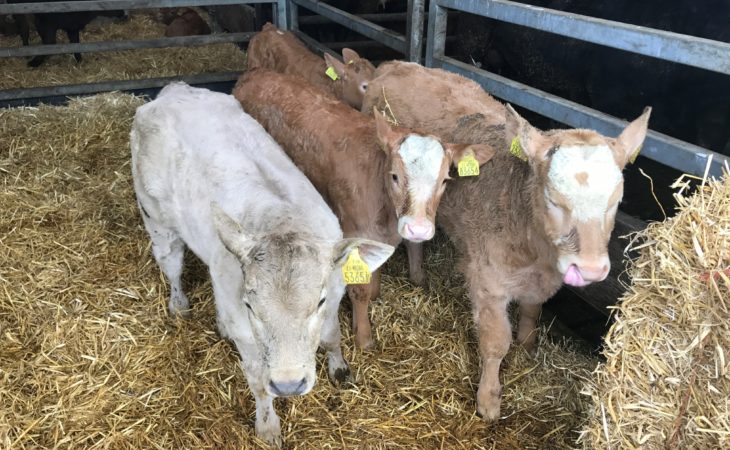The issues of coccidiosis in calves is an issue that can re-occur each year in calves that have a bit of age on their side.
A similar form to cryptosporidia, coccidiosis is caused by protozoa – although as previously mentioned – it is not a problem that is prevalent in calves shortly after birth but rather calves that are slightly older.
Coccidiosis tends to be seen in calves from about three-weeks-old up to about six-months-old.
A positive point is that cattle will develop an immunity to the condition over time, but young calves with an underdeveloped immune system placed in a dirty environment can succumb to the disease.
Having calves in a dirty environment will leave them more likely to ingest high numbers of the immature protozoa and as these calves get older they will have less passive immunity from the cow’s colostrum.
Infected calves also pose a threat to other uninfected calves, as they pass out large numbers of oocytes which can contaminate the environment for other calves. The oocytes have the potential to survive for long periods in the environment.
This week Aidan Murray, from Teagasc, has provided the following information on the signs, treatment and prevention of coccidiosis.

Signs of Coccidiosis
In terms of the effects which Coccidia can have, it will cause a watery scour as they damage the mucosa of the intestine.
It will also cause damage to the intestine and reduces the calf’s ability to absorb fluids and nutrients and so calves that are infected can become dehydrated. They may then start to pass blood, shed part of the intestine lining and can become weak and uncoordinated.
Mentioning further affects, Aidan stated that calves which have the condition can often be seen straining. Probably the biggest economic loss is poor thrive in animals that are affected.
Therefore, if you see scouring in older spring-born calves at this time of year, coccidiosis could be a likely cause.
Commenting about his experience of dealing with the cases of coccidiosis, Aidan stated:
“In many herds there may be sub-clinical infection where animals show very little symptoms and will recover with time but thrive will be affected and I have come across a number of cases where farmers have complained that ‘calves are not doing’.”
Treatment of calves for coccidiosis
In cases where Coccidia has occurred in the past, then farmers need to keep a close eye on their calves because it can easily re-occur again – especially in cases where hygiene is poor.
Good management of coccidia involves allowing the calves to be exposed to the parasite to develop immunity but at the same time avoiding disease and poor performance.
For treatments, Aidan advised that in herds that have an ongoing problem with coccidiosis, they will often dose calves with anticoccidial products (diclurazil/toltrazuril) as a prophylactic.
Typically calves will be given an oral dose of between 20-30ml depending on the weight of the calf. One dose is usually sufficient if timed correctly.
Calves that are scouring become dehydrated and should receive normal electrolyte therapy and be removed from the group.
Choosing a disinfectant that is effective against oocytes is also critical.
A useful piece of advice is to take faecal samples from calves and send these to the laboratory as it will quickly rule in or out if there is a coccidia problem.

Prevention
The first area to improve is the calf’s environment by increasing the amount of bedding used in the calf areas. Aim to prevent the build-up of faecal contamination in and around feed and water troughs.
Avoid mixing of different ages of calves as younger calves will be more susceptible and avoid overstocking of sheds. If you have had a problem make sure sheds are cleaned and disinfected between batches of calves.
When choosing a disinfectant, ensure that it is effective against oocytes. A good tip is to keep a record of any coccidiosis on the farm and use this information to target treatment year-on-year.
Animals can be given licenced medication, as already mentioned, to prevent the disease but note that there is no vaccine available against coccidia.
Concluding his advice, Aidan stated that if you think coccidiosis is an issue on your farm, get a vet to investigate and they can develop a health protocol to control the problem.
